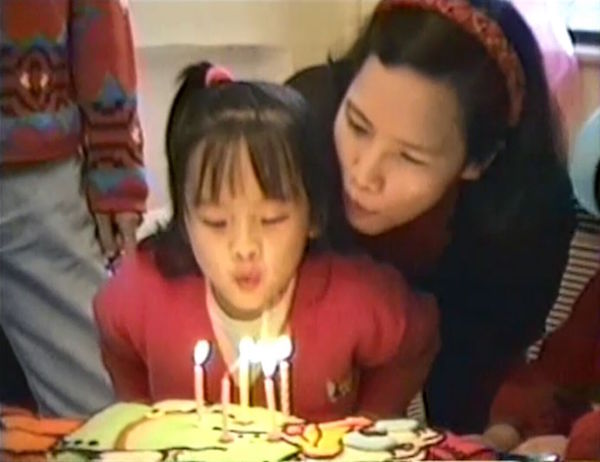Mother’s Day may have passed months ago, but filmmaker Ellie Wen’s short documentary will make you reach for your cell phone and call your mom to tell her you love her anyway.
Wen was born in Hong Kong but she spent most of her formative years in Los Angeles with her single mother. She earned a bachelor’s degree in drama from Stanford University in 2009 and then returned home to L.A. to pursue her filmmaking dreams. While taking a documentary course at UCLA, Wen was ready to shoot her film when her subject unexpectedly fell through. In the spur of the moment, she decided to call and interview her mother instead.

Ellie Wen’s “Single Mother Only Daughter” (Courtesy photo)
The result is a sweet, honest and deeply moving exploration of the complicated relationship between an only daughter and her single mother. Wen’s nine-minute short documentary begins when she dials her mother’s phone number, and their conversation trails along as a slideshow of childhood photos and videos plays onscreen. They talk about what it was like having only each other through the years, and discuss moments when their mother-daughter roles seemingly reversed.
In addition to revealing the dynamic between herself and her mother, Wen’s short film also sheds a bit of light on the issue of stigma surrounding mental illness, especially in the Asian and Asian American community. Wen said that in making this documentary and having an open, honest conversation with her mother, her viewers will feel free to be honest as well.
WATCH “Single Mother Only Daughter”:
“As tough as you might think it would be to work on and share something so personal, the process of making and releasing the film has actually been very enjoyable,” Wen told Kore.
Learning that a documentary could come from such a candid conversation led to a feeling of excitement and discovery, while the editing made Wen feel “surrounded” by her mother’s presence. Wen also said that she was grateful for the comments on her video and that she hopes her audience feels “empowered to tell their own stories.”
Wen also said that as a female Asian American filmmaker, she believes it is “incredibly important to … champion underrepresented perspectives and voices.”
“I’m really proud to say that 100 percent of the projects I’m working on and have brought in are created by female and minority filmmakers,” Wen said.
“The scariest moment was when I showed it to outsiders for the first time,” Wen said. Yet, amid her anxiety about how others would react to her film, she recalls the moment when the lights went up in the auditorium, and she saw people dabbing at their wet eyes.
“I never imagined that other people would relate to our specific dynamic and see themselves in it,” she said. “I discovered that it is truly in the specific that you find the universal.”







